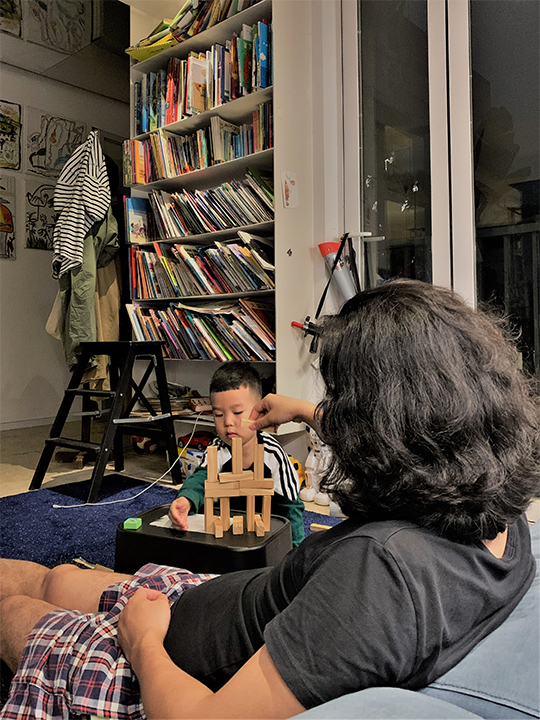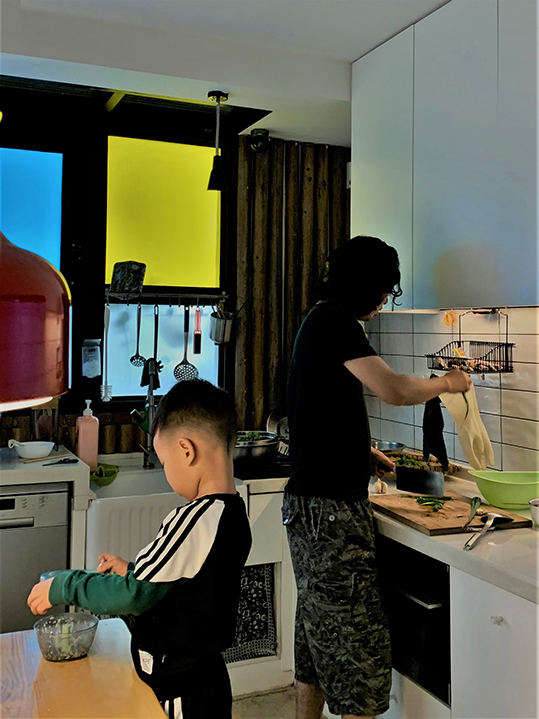

The unpaid nature of domestic work renders its value invisible, and the invisibility of its value relegates the labor effort to the background.
However, is there really no need to compensate for household work? Not so today.
In February 2021, Ms. Wang, a full-time mother from Fangshan, Beijing, received a compensation of 50,000 yuan from her husband. Due to her long-term responsibility for most of the household chores, Ms. Wang filed a claim for domestic work compensation in her divorce claim; this was the first divorce domestic work compensation case concluded by applying the new provisions of the Civil Code of the People's Republic of China . Article 1088 of the Civil Code improves the system of financial compensation for domestic work, which started in 2001, and further recognizes the value of domestic work. In June of the same year, Ms. Qi, a full-time mother in Taizhou, Zhejiang Province, also applied for domestic labor compensation in her divorce and received a compensation payment of 15,000 yuan.
From February to June, as the number of domestic work compensation cases increased, what was presented was everyone who undertook domestic work in the family mutely.
According to the 2018 National Time Use Survey Bulletin, each resident will spend an average more than 2 hours doing household chores, taking up almost all unpaid labor a day .For residents who need to accompany childcare, childcare becomes the main activity in caring for the family for more than 3 hours a day, with women often being the main contributors to the menial household chores and childcare.
For those who choose to work full-time, the curtain is pulled tighter and getting up early to complete household chores has become the norm.
Liu Jia, a mother of two kids from Beijing, quit her job after the birth of her elder son. As her children grew up, Liu Jia's care tasks are not light but heavy. After doing the daily chores, Liu Jia has to stay with her children to work on the content of the after-school tutoring classes. From 6:20 a.m. to 23:00 p.m., Liu Jia has only one hour to read and relax before preparing lunch. For full-time mothers like Liu Jia, the "palm-up life - no income for themselves" makes them prefer to spend more time on their children than on themselves.
Faced with "family" and "self", full-time fathers are equally helpless.
To get more free time, full-time father Lao Tan in Chongqing wakes up 50 minutes earlier than Liu Jia only to play a few games before breakfast. "The most torturous part was the time when my youngest son was not yet in school," recalls Lao Tan, adding that childcare took up most of his time, and he had to do chores by making use of every little bit of time -using the children's TV watching time to clean and organize things, with very little leisure left.
Liu Jia, Lao Tan, and many more of the main bearers of housework, silently toggle the gears of the family forward in the alternation of housework - childcare - housework. Children's growth is constantly treasured and housework has also left its mark on them.
Shen Yanping's mother has been in the city from her hometown for more than 20 years. Because she was not used to wearing gloves to do housework, the long-term soaking in detergent caused cracks all over her hands. The mother had a recipe from somewhere, said that soaking hands with white vinegar and flowers can be effective to solve the problem, but the premise is not to touch detergent. But when Shen Yanping was not at home, her mother had to put on gloves and clean Li Jianfeng's clothes.
Shen Yanping's mother is running the household.
Long-term housework not only drains the body, but also leaves a knot in the heart.
Liu Jia, who thought she was strong, was devastated by her husband's words: "You are just idle at home, what have you done? Nothing." After doing full-time jobs, Liu Jia became sensitive in this regard. It's not that her husband doesn't understand her, but when they have conflicts, "full-time" becomes her husband's only point to attack.

















